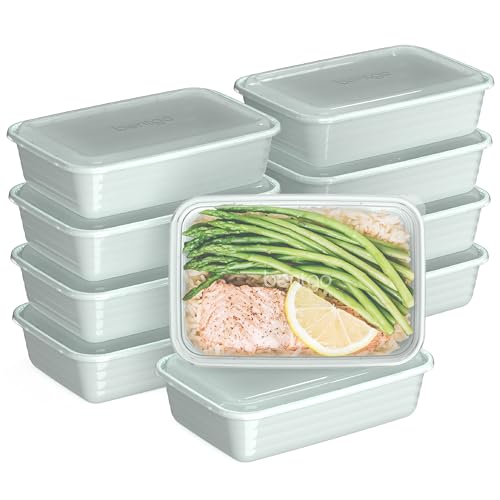As a friend during pregnancy and postpartum, your role is to offer genuine emotional support, listen without judgment, and help with practical tasks like chores or errands. Respect boundaries by communicating openly about what support is helpful and avoid overstepping. Show appreciation for their feelings and needs, and be reliable without being intrusive. Keeping these do’s and don’ts in mind will help you provide meaningful help as they navigate this important life stage. To learn more, keep exploring ways to be a supportive presence.
Key Takeaways
- Offer emotional support by listening without judgment and providing reassurance during hormonal and emotional changes.
- Assist with practical tasks like chores, errands, and meal prep to ease physical and mental stress.
- Communicate openly about your needs and boundaries; accept help selectively and respectfully.
- Respect the pregnant or postpartum person’s vulnerability, and ask for specific support when needed.
- Show appreciation for friends’ efforts and maintain open, honest communication to strengthen your support network.

Having friends during pregnancy and postpartum can make a world of difference in your experience. They’re often your biggest cheerleaders, offering emotional support when you need reassurance and understanding. Pregnancy can bring a whirlwind of emotions, from excitement to anxiety, and having friends who listen without judgment helps you feel less alone. Their presence can boost your mood, remind you that you’re not steering this journey by yourself, and give you a sense of normalcy amidst the hormonal shifts. Practical assistance is equally essential—friends can help with everyday tasks that become overwhelming as your belly grows or your energy dips. Whether it’s running errands, preparing meals, or helping with household chores, their help lightens your load and allows you to focus on resting and bonding with your baby. Many friends genuinely want to support you during this time, but it’s crucial to communicate your needs clearly. Let them know if you need a listening ear, advice, or just someone to sit with you. Be honest about what’s helpful and what isn’t, so they can show their support in meaningful ways. Remember, you don’t need to accept every offer of help or emotional support; it’s okay to set boundaries. Sometimes, friends might overstep or give unsolicited advice, which can feel overwhelming. Respectfully steer conversations toward topics you’re comfortable with and express your gratitude for their concern. If you’re feeling vulnerable or overwhelmed, don’t hesitate to ask for specific types of support—whether it’s a quiet visit, a grocery run, or just a phone call to vent. Your friends can be a lifeline, but only if you’re open about your needs. It’s also worth noting that not all friends will know how to support you during this time, and that’s okay. Some may need guidance on what to do or say, so sharing your preferences can help them be more effective allies. Additionally, understanding the role of friends in emotional support can help you navigate this relationship better. The key is mutual understanding and respect. Overall, nurturing your friendships during pregnancy and postpartum can enhance your well-being, providing comfort, strength, and practical help when you need it most. Recognize and appreciate the effort your friends make, and don’t be afraid to lean on them—you deserve the support as you acclimate into this new chapter of your life.

Momcozy Pregnancy Pillows for Sleeping, U Shaped Full Body Maternity Pillow with Removable Cover – Support for Back, Legs, Belly, HIPS for Pregnant Women, 57 Inch Pregnancy Pillow for Women, Grey
Ergonomic Supportive Pillow – Momcozy full body pillow designs to replace the needs of multiple bed pillows, it…
As an affiliate, we earn on qualifying purchases.
As an affiliate, we earn on qualifying purchases.
Frequently Asked Questions
How Can Friends Support a New Mother Without Overstepping?
You can support a new mother by respecting her boundaries and offering emotional support without overstepping. Check in regularly to see how she’s feeling and ask what she needs, rather than assuming. Be patient and understanding, giving her space to rest and recover. Remember, active listening and genuine kindness help her feel supported without feeling overwhelmed or pressured, fostering a healthy balance of friendship and respect.
What Are Signs of Over-Involvement From Friends Postpartum?
You might notice boundary crossing when friends frequently check in uninvited or offer unsolicited advice, making you feel overwhelmed. Over-involvement often shows through constant visits or unsolicited opinions about your parenting choices. If friends dismiss your cues or ignore your need for space, it’s a sign they’re overstepping. Remember, healthy support respects your boundaries, allowing you to adjust your support network without feeling pressured or overwhelmed.
Are There Specific Topics Friends Should Avoid During Pregnancy?
During pregnancy, you should avoid sensitive topics like baby shower plans and nursery decorating. Friends should be careful not to pressure you about these issues, as they can cause stress. Stick to positive conversations about your feelings and experiences. It’s best to listen and offer support rather than push opinions or advice on decisions like baby shower arrangements or nursery themes. Respect your boundaries for a healthy, supportive friendship.
How Can Friends Help With Postpartum Mental Health Struggles?
You can support postpartum mental health by offering emotional validation and listening without judgment. Be present and acknowledge their feelings, reminding them they’re not alone. Practical help, like cooking, cleaning, or caring for the baby, eases their burden and shows your support. Avoid offering unsolicited advice, and instead, encourage professional help if they seem overwhelmed. Your consistent presence and understanding make a significant difference during this challenging time.
When Is the Best Time for Friends to Visit After Childbirth?
Like a gentle breeze, the best time for friends to visit after childbirth varies, but usually, waiting until you’ve had time to rest and settle in is ideal, often around two weeks. Respect your guest etiquette by asking what works for you and respecting your boundaries. Avoid visiting too early, as you need recovery time. Trust your instincts—your comfort comes first, and honest communication helps set the right visit timing.

Frida Mom 2-in-1 Postpartum Pads, Absorbent Perineal Ice Maxi Pads, Instant Cold Therapy Packs and Maternity Pad in One
INSTANT COLD THERAPY: instant first aid ice packs built into the pad that delivers the recommended 20-minute therapy…
As an affiliate, we earn on qualifying purchases.
As an affiliate, we earn on qualifying purchases.
Conclusion
Remember, your friends play a essential role during pregnancy and postpartum. Offer support, listen, and respect boundaries to help navigate this special time. Did you know that 78% of new mothers say supportive friends boost their mental health? By being there for your loved ones, you create a positive environment that fosters happiness and resilience. Your kindness and understanding can make all the difference in their journey to motherhood.

Bentgo Prep – 20-Piece 1-Compartment Reusable Meal Prep Containers with Lids, PFAS & BPA Free Materials, Durable, Microwave, Freezer, & Dishwasher Safe To Go Food Storage (Mint)
#1 Brand Pick for Meal Prep Containers: Bentgo is the top pick for meal prep containers!* This lightweight,…
As an affiliate, we earn on qualifying purchases.
As an affiliate, we earn on qualifying purchases.

Good Moms Have Scary Thoughts: A Healing Guide to the Secret Fears of New Mothers
As an affiliate, we earn on qualifying purchases.
As an affiliate, we earn on qualifying purchases.









